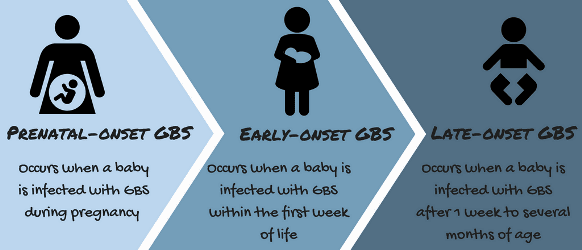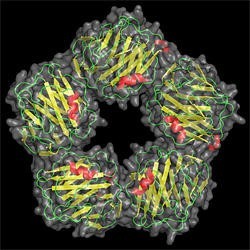Group B Streptococcus (GBS)
Group B Streptococcus (GBS) is a very common reason for severe infection in new-born.It is also a cause of meningitis in babies less than 3 months.

GBS infection usually occurs in the first week of birth and may occur even within the first 12 hours.
As the babies grow older the infection becomes less common and is rare. The chances of getting GBS is almost negligible after the age of 3 months.

Early onset GBS is prevented by giving IV antibiotics in ladies whose babies have high risk of getting this infection.Up to 30% of women may have colonization of this bacteria in their vaginal tract.Carriage of this bacteria at the time of vaginal delivery may lead to transmission of GBS to the new borne.Babies have immature immune systems and are hence more prone to the infection.


If untreated, GBS can cause meningitis and septicaemia, which may lead to stillbirths, and new-born and infant deaths.

If they survive, babies can develop permanent problems including hearing or vision loss, or cerebral palsy.
To Diagnose Colonies of GBS vaginal swabs should be taken at 35 weeks of pregnancy and cultured to rule out the presence of GBS colonization in the vagina.






